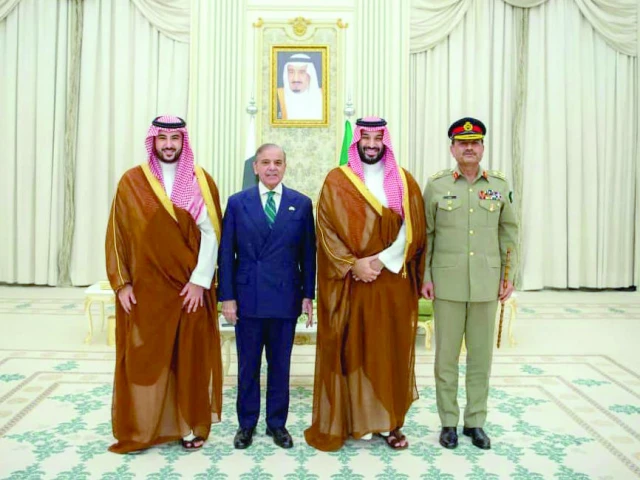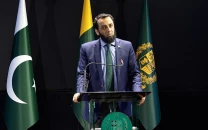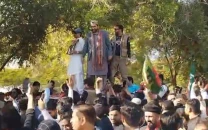Dar, Asif hint defence pact could expand beyond Saudi Arabia
DPM says other countries have expressed a desire for similar arrangements to Riyadh

Deputy Prime Minister and Foreign Minister Ishaq Dar signalled that Pakistan’s landmark defence pact with Saudi Arabia may pave the way for similar agreements with other countries in the region, with interest already being expressed by potential partners.
Speaking to reporters in London on Friday, Dar said that some nations had shown interest in forging strategic defence partnerships with Pakistan following the recently concluded agreement with Saudi Arabia.
“It is premature to say something, but after this development, other countries have also expressed a desire for similar arrangements,” he noted. He added that such agreements follow a formal process and recalled that the Saudi deal itself took several months to finalise.
Calling the defence pact with Saudi Arabia a "historic milestone", Dar said the understanding formalises what had long been an implicit expectation in Pakistan—protecting the Kingdom and particularly the sanctity of Harmain Sharifain.
He added that both countries were pleased with the agreement, and reiterated that Saudi Arabia had consistently supported Pakistan during times of crisis, particularly in recent years amid economic and geopolitical challenges.
Meanwhile, in an interview with Arab media, Defence Minister Khawaja Asif confirmed that the agreement with Riyadh could be expanded to include other Gulf nations, adding that the arrangement is envisioned to go beyond traditional bilateral cooperation. He described the pact as a reflection of mutual trust and a shared commitment to regional security.
Asif clarified that the agreement does not contain any secret clauses and includes provisions for joint training and technical cooperation.
He said the framework ensures collective security, where aggression against one signatory would be considered aggression against the other. “Given today’s increasingly tense global environment, such agreements are essential,” he remarked.
He stressed that Middle Eastern countries must reduce dependence on distant foreign powers for their defence and work towards building indigenous capabilities.
“They must evolve into self-reliant nations with the ability to defend themselves,” he said, adding that if other Arab countries signal interest, Pakistan would be open to extending the pact beyond Saudi Arabia.


1675249047-0/image-(18)1675249047-0-208x130.webp)

















COMMENTS (1)
Comments are moderated and generally will be posted if they are on-topic and not abusive.
For more information, please see our Comments FAQ